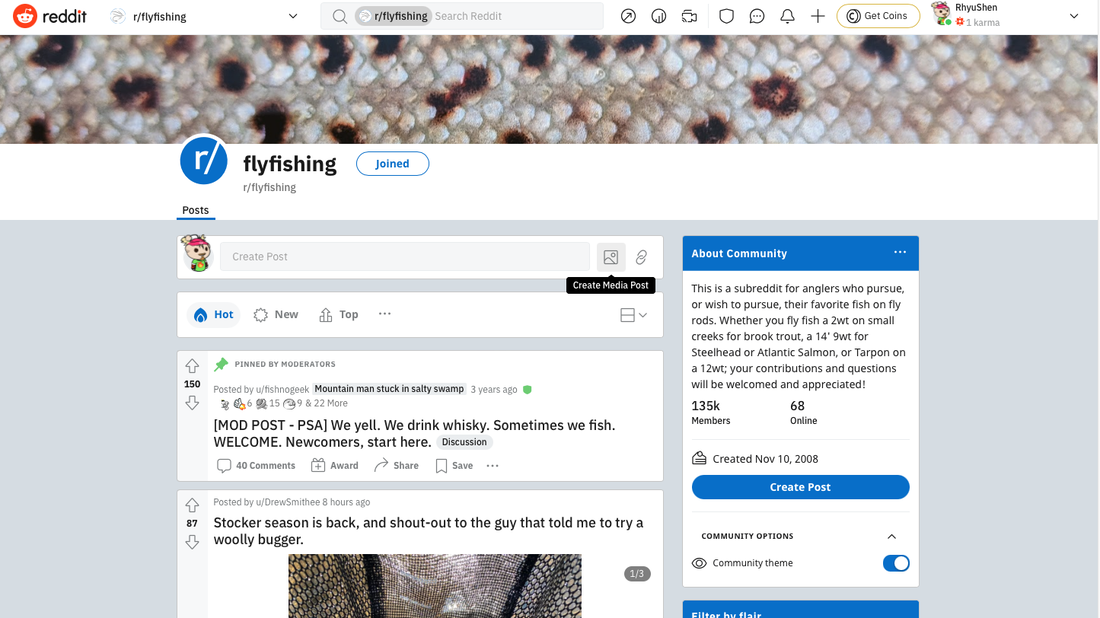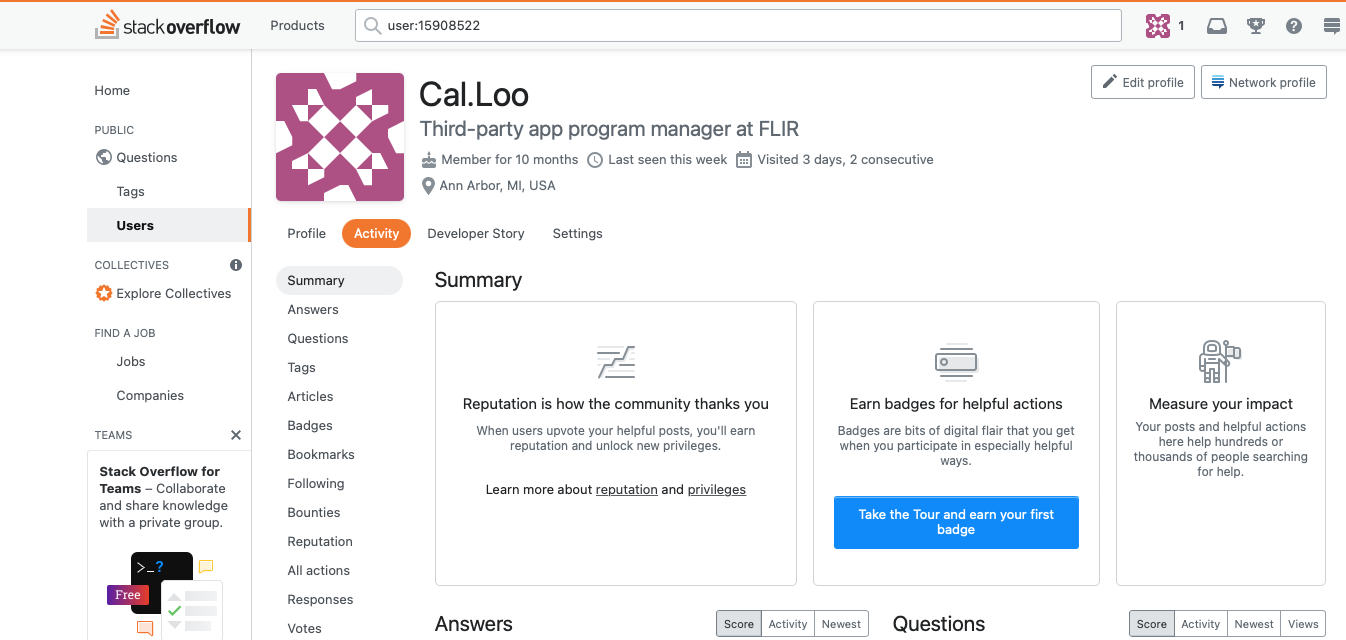|
Making connections with previously-unknown speed and scale. If you’re looking to make connections and have real conversations with like-minded people about your shared interests, then online discussion forums can be an amazing place! You can find and engage people that share an interest in virtually any subject with just a few clicks. Impressive as that is, the sheer scale of the engagements you can create may be even more impressive than the speed! Within seconds of signing into my Reddit or Quora accounts, I can literally start or join conversations with other interested users from anywhere in the world. Not familiar? Reddit is an online network of communities where people can dive into their interests, hobbies, and passions. Reddit is broken up into more than a million communities known as “subreddits” each of which covers a different topic. It’s easy to get started by creating your own account, and Jake Widman of Digital Trends offers a decent primer for getting started using Reddit. Quora defines itself as an online place to gain and share knowledge; a platform to ask questions and connect with people who contribute unique insights and quality answers, empowering people to learn from each other and to better understand the world. Deepak Mehta offers a good guide for getting started on Quora in this blogpost. Want some examples of the impressive scale of these kinds of platforms? I’ve been fly fishing for almost 30 years, and I love learning about beautiful new places to fly fish and hearing about others’ experiences catching species that I haven’t. With my Reddit account I can hit the r/flyfishing subreddit and immediately join in conversations with the 135,000 members around the world. Think that’s a lot? The r/interestingasfuck subreddit has 9.3 million members - seriously - and browsing there will take me to interesting places I never would’ve imagined on my own. On Quora, I can choose the topic addiction & mental health and get immediate access to posts by or Q&A threads involving 8 contributors and 17,900 followers. I can also just dial up the topic of mental health and jump in with 108 contributors and 46,000 followers. The internet has enabled us to connect with other people in ways never before possible, enabling us to share data, information, opinions, and feelings with speed and scale never possible before. Getting help, finding help, and seeking a diversity of opinions. So what do you DO with all these connections? Sure, you can gain and share knowledge from reading others’ posts and even participating in chats with them - these ARE discussion forums, after all! At a high level you can start to feel like you belong to a larger, online “community” of people that share an interest in a particular topic, and you can even form friendships with the people you connect with there. These platforms can also make it easy to get help from other members of that “community,” allowing you to gain information you didn’t already have, hear perspectives and opinions that are different from yours, and even get personal references to other helpful people or organizations that aren’t already directly involved in the conversation. I’ll use Stack Overflow - an online community for app developers that lets them learn, share their programming knowledge, and build their careers - as an example. In a former role as the third-party app developer program manager for a company in Sweden, I had to build a community of app developers all interested in creating mobile apps using our software and hardware technologies to transform smartphones into legit thermal cameras. We created an in-house website that included a dedicated discussion forum, but I also realized that we needed to meet the developer community in a more public place to make it easy for them to communicate with us and with each other, so I created an account on Stack Overflow. I found that the developers I worked with tended to use the in-house discussion forum to communicate directly with my colleagues and our technical support team, while using Stack Overflow more often to interact more freely with each other where they felt more open to share opinions, things they learned, and information about other helpful resources. They learned from, supported, and complained to each other; they formed connections beyond what they were working on for my program, and they helped each other build their experiences and career paths. The dark side of all these online connections and discussions. To be honest I’m not spending much time at all on these discussion forums outside of work right now, for a number of reasons. First, as I mentioned in an earlier post, information overload is a real thing, and I found myself getting overwhelmed with posts and responses in the discussion forums that I found to be irrelevant, un-interesting, or “off-key” for my tastes. Everyone is welcome to their own opinions of course, but I don’t need to hear all of them and I definitely don’t want to hear them from people that are being rude or disrespectful. On the other side of that issue, I don’t personally find satisfaction or a sense of connection from the many impersonal, shallow responses I encountered. Second, personal safety is a real concern on multiple levels. Most discussion forum platforms offer engagement rules that instruct people to be good to each other (like Reddit’s “Be Civil” policy and Quora’s “BNBR” (Be nice, be respectful) policy), but realistically online platforms often give people a sense of anonymity, so they’ll say things in ways they normally wouldn’t. If the platform’s rules and enforcement policies and processes don’t have enough teeth, then there is no true accountability for the things users say online. It can feel mentally and emotionally unsafe to put your authentic thoughts, feelings, and opinions into that space. Further, there are documented cases where some users have threatened other users’ physical safety - and really, who has time or energy for that? Third, data security issues are also a real thing. This 2019 Digital Trends article about a security breach at Quora that affected about 100 million users is downright scary. A clear commitment to protect users’ data is a good place to start, and an explicit commitment to never sell users’ data is even better. More on that in a future post. (Photo credit Douglas County Sheriff) In the first post in this series I explored what exactly a “community” is, and these two definitions served as a starting point: Community (noun): a group of people living in the same place or having a particular characteristic in common. Also: a feeling of fellowship with others, as a result of sharing common attitudes, interests, and goals.
Closing out this post about discussion forums I’d like to suggest a better definition: Community (noun): a group of people sharing physical or virtual space that a.) have a particular characteristic or interest in common, b.) create a fellowship with others by investing time and energy into the group, and c.) have a genuine interest in the well-being of the other members. That’s the kind of online community I’d like to be part of, and I’m honored to be part of the team creating it in the Eos Community Connections portal. Coming up next: Event management platforms.
2 Comments
3/11/2022 05:30:35 am
Thank you for this informational piece. I find myself less and less interested in social media lately because of the lack of depth in the exchange of ideas. I look forward to participating in the eos community.
Reply
Hi Sibel,
Reply
Leave a Reply. |
Cal LooFather. Son. Brother. Friend. Business owner. Change agent. Social entrepreneur. Ordained ceremonialist. Outdoors enthusiast. Fly fisherman. Community builder and connector. Archives
July 2022
Categories |
- Home Page
-
Community Content
- Cal's Blog
-
Resources for Life Transitions
>
- Life Transition Zone - animated
- LTZ Ambassadors
- Upcoming LTZ events
- Joining Community & Immigration
- Parenthood
- Coming of Age
- Marriage or Union
- Abuse
- Job or Career Change
- New Business
- Human Trafficking
- Addiction & Recovery
- Divorce or Uncoupling
- Homelessness
- Military Life Transitions
- Health Crisis
- Grieving
- Emerging Self Awareness
- Crowning (Aging and Claiming Sovereignty)
- Upcoming Events >
- Our Programs
- About
- Sponsorships
- Contact Us
Site powered by Weebly. Managed by iPage






 RSS Feed
RSS Feed